How Language is at the Heart of Expansion in iGaming
iGaming is experiencing a phase of extraordinary change. Between the emergence of eSports, the acceleration of new markets in the US and APAC, ongoing changes in EU legislation, the growth of 5G and mobile infrastructure, behavioral shifts brought on by Covid-19, and the rise of technologies such as Augmented Reality, Voice, and the Metaverse, the iGaming industry has never been so ripe with opportunities.
These unprecedented levels of disruption, however, come with evolved player expectations and mounting competitive pressure — to the point that, in most cases, expansion isn’t just an option: It’s an imperative.
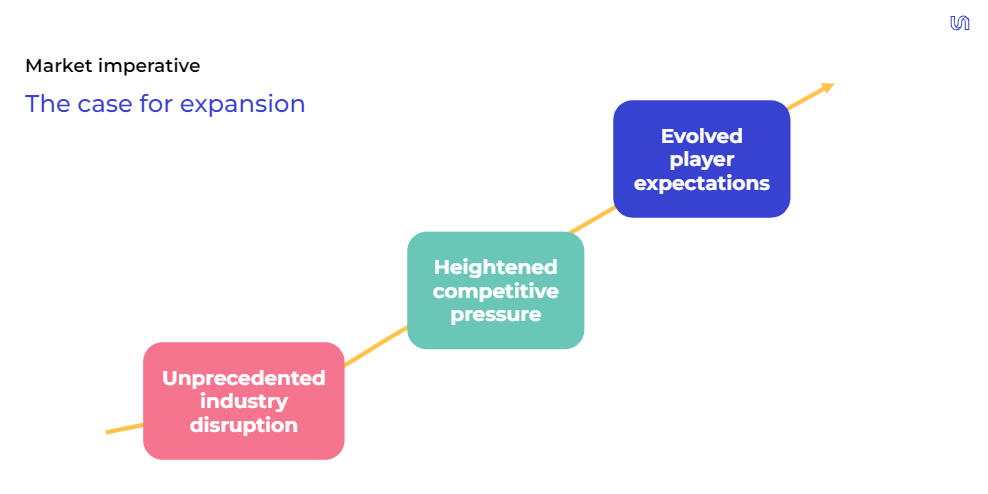
To seize the momentum, companies must create a customer experience that will engage players, build trust, and differentiate their offerings. And at the heart of it all is language.
Unbabel’s Director of Product Marketing, Phill Brougham, gave a talk at SBC Summit Barcelona 2022, where he shared the secret to crafting an expansion strategy that leverages language and localization to attract, convert, and retain players globally. We’ve broken down the key elements of turning language from a barrier to a competitive edge.
Language: Obstacle or oxygen?
With players’ expectations soaring, only companies that can deliver a safe, enjoyable experience across all stages of the customer journey stand a chance of succeeding. Adding language to the mix only raises the stakes, but much like facing the final boss at the end of a game, it’s not a step that can be easily skipped. After all, 72% of the world doesn’t speak English. Businesses that want to capture global players must invest in localization as part of their expansion strategy.
What’s more, language isn’t trivial: It matters deeply to customers. According to Unbabel’s Global Multilingual CX Report, 57% of consumers consider companies that don’t offer end-to-end multilingual experiences not just less appealing, but biased. An additional 44% feel that a business speaking their language helps them relate to the brand.
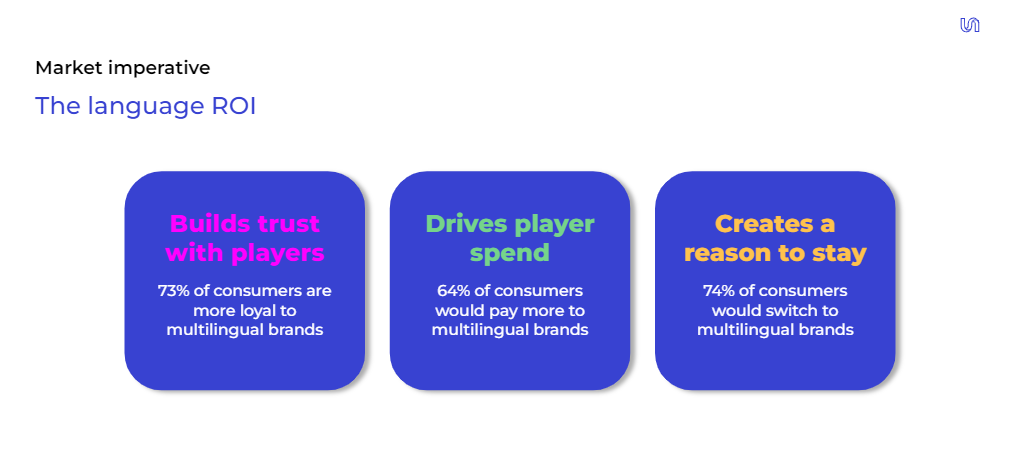
Language creates trust by offering consumers a common reference point and fostering empathy. It increases customer stickiness — 74% of customers would switch to a different brand if it spoke their language — and raises the likelihood that players will spend more on your product — 64% said they’d pay more for products and services that came with a fully localized customer experience.
However, beware of blunders: Localization is a delicate process, and when poorly implemented, it can immortalize your brand in the minds of your players for all the wrong reasons.
This is why expanding without a language strategy is like climbing Everest without oxygen: Expansion isn’t straightforward, and achieving consistency, accessibility, and quality across markets without factoring in language or mapping out a clear plan is a nearly impossible feat.

The three challenges that hold back multilingual expansion
Beyond amusing localization faux-pas, there are three challenges that hold back multilingual expansion:
To solve these challenges, some businesses have tried to adopt solutions that are time-efficient but cheap, relying on pure Machine Translation, or higher quality but slow, counting solely on human translators. In isolation, however, neither option has proven to be the winning bet.
How to bridge the language gap with LangOps
Businesses that have aced their localization efforts have sharpened their approach with a Language Operations (LangOps) strategy. LangOps removes the slow, start-from-scratch approach to language and translation, in favor of a holistic, centralized system. It leverages machine technology to accelerate and advance translations, and employs quality tools to determine when to loop in human editors for revision. It’s also supported by extensive reporting to create clarity and accountability in the operation, which allows companies to pinpoint where to make improvements.
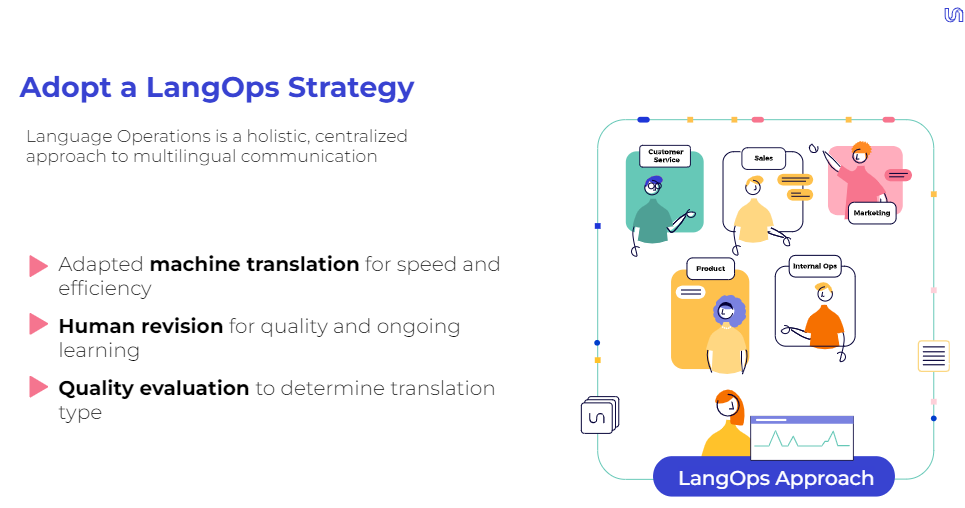
Through LangOps, companies can reach greater operational efficiency by:
- Launching content and information faster and more consistently
- Removing the need to hire locally or based on language skills
- Leveraging existing talent and in-house specialists to meet demand across markets
- Achieving a consistent approach to translation
The fact that LangOps can be centrally directed also means that teams aren’t isolated, and the right resources can always be invested in the right place. Ultimately, this efficiency pays off: Many brands of excellence that have adopted a LangOps strategy, like award-winning game developer Wargaming, have reaped incredible benefits, such as better turnaround times, increased player conversion, reduction of costs, and improved customer satisfaction.
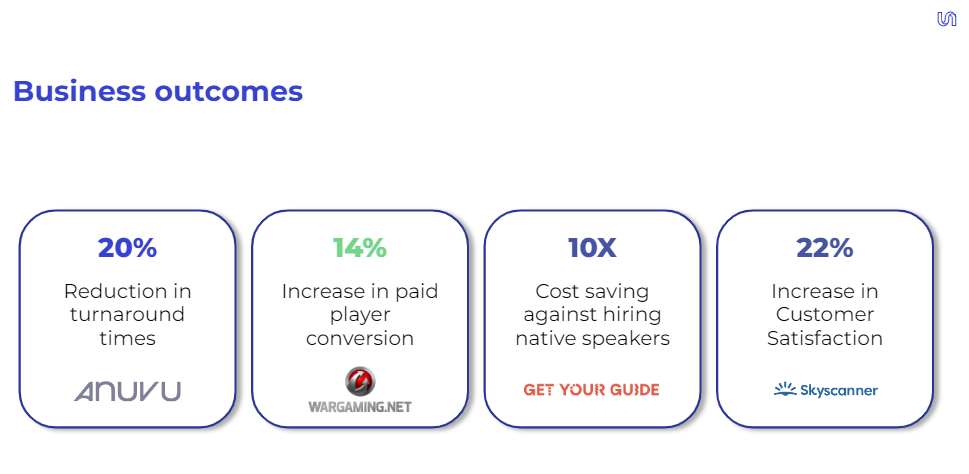
Similarly, Hero Gaming, a fast-growing company in the iGaming market that includes brands such as Boom Casino, Casino Heroes, and Simple Casino in its portfolio, was able to expand its operations and launch into Finland without any additional headcount. It relied on its existing support teams in Malta and India to support longtail languages, while cutting costs, slashing response times, and maintaining an average CSAT score of 90%.
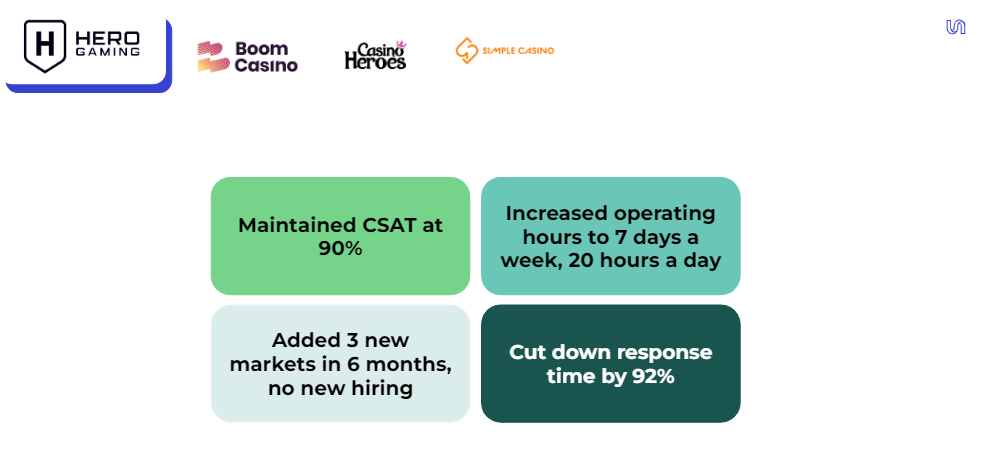
Raising the stakes with Unbabel
The path to the future of iGaming and successful international expansion is clear and achievable with the combination of technology and people. Unbabel, who was recognized by Gartner as one of three LangOps Sample Vendors, is a language technology platform that helps companies expand and localize their offering, marketing, and support in 130+ language pairs, so that they can offer their customers an unmatched CX.
Unbabel blends the power of machine translation, natural language processing, and quality evaluation technology with the expertise of human reviewers and translators, to help midsize to enterprise businesses create true connections with their end customers. Many businesses in iGaming, plus other consumer industries including media, streaming, eCommerce, and travel, have relied on Unbabel to face the challenges at the core of expansion.
Are you ready to go all-in with a language operations strategy that works?
Sign up for our free trial today:















